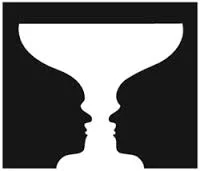Heroes or Victims: A Tale of Two Perspectives
Three Points To Consider
1. The hands we’re dealt aren’t always good ones. The people, behaviors, situations, circumstances, conditions and events we encounter don’t always measure up to what we expect. I thought I’d begin with an understatement!
2. We always make choices about the bad hands we're dealt. Yes, we also make choices about the good ones, but the choices we make about the bad hands are especially important.
3. The choices we make are determined more by our perspectives than by the bad hands themselves. I want you to think about that one, because those choices determine if, when and how effectively we deal with those bad hands we’re dealt. If perspective is so important, maybe we should try to get a better sense of what it is and how it works. We will benefit by understanding how we use it.
Perspective
As I see it, perspective is a two-phase mental process by which we perceive and process. Our perceptions include the information we gather about the people, behaviors, situations, circumstances, conditions and events in our lives.
Most of the drama we experience is the result of that second phase, where we process by assigning meanings to the information we’ve gathered. The fact that we assign those meanings unconsciously makes it easier for us to completely overlook the roles we play in creating much of the drama in our lives and limiting our effectiveness at dealing with the bad hands we’re dealt.
To illustrate this connection between our perceptions, the meanings we assign and the power of our perspectives, let’s consider this question: What does in mean to be 60? I’m sure you’ll agree that it pretty much depends on where we’re looking at 60 from, right?
If we asked either of my daughters (ages 25 and 27) what do you think they’d say? I’m guessing it would be things like, “Old”, “Really old”, “Don’t set any long-term goals” or “There are more things you can’t do than you can”. And if we asked my 88-year-old mother-in-law, we probably hear things like, “Sweet bird of youth”, or “What I’d give to be 60 again”.
So we’ve got the same number (60), used in the same context (depicting chronological age), viewed at the same time by two people who, when asked to declare what it means, assign totally different meanings. I’m not saying that the number is irrelevant. What I am saying is that the meanings those people assign are not based so much on the number as they are on their perspectives on the number.
Perspective is a mental process that all use countless times each day. Our perspectives produce both emotional and behavioral consequences. What that means is that if we are committed to improving the quality of our feelings and behavior, a good place to start is with the perspectives we use.
Two Perspectives in Play
While no two people’s perspectives are identical, there are what I’ll call “group perspectives”. Some common examples are perspectives based on gender, race, nationality and political affiliation. In this series of pieces I’ll be focusing on two perspectives most of us use to process the bad hands we’re dealt.
1. The victim perspective, characterized by emotional victimhood, and
2. The hero perspective, characterized by emotional accountability
We’ll begin with the one that is by far the more popular. Which do you think that is?
NEXT ARTICLE: A Word or Two About Beliefs

